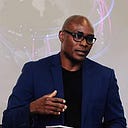Member-only story
Should academics endorse political candidates? No. But to do their jobs properly, they may end up doing so.
A title from a recent article from Inside Higher Ed reads, “Faculty Overwhelmingly Back Harris in November. But They Won’t Tell Students to Do the Same.” At one point in the article, data was displayed from a recent faculty survey showing that some will discuss the election, most will encourage students to vote, but few would encourage students to vote for a particular candidate or party.
My views are pretty much in line with most of my colleagues. I’ll discuss the election, encourage students to vote, absolutely! But no, I won’t directly push them to vote for a specific candidate or party.
At least, not overtly.
However, if I’m doing my job well, it’s hard to avoid the real-world impact of the material I’m teaching. In that sense, many of us will be indirectly guiding students one way or another. And I’d go further: avoiding the political implications of the knowledge we share, especially when students bring it up, is essentially a failure of our professional responsibility.
Let me explain.
Politically correct. Professionally suspect.
Consider this scenario:
